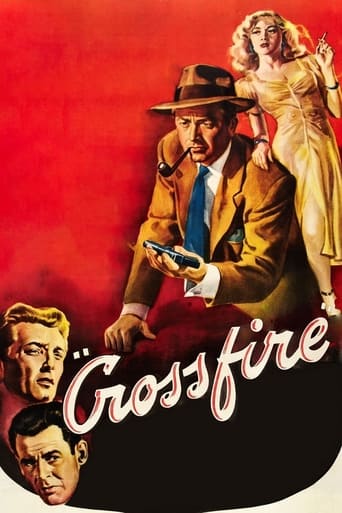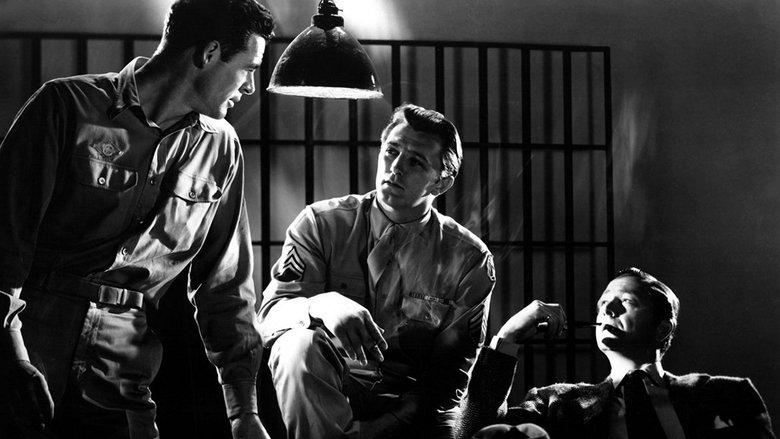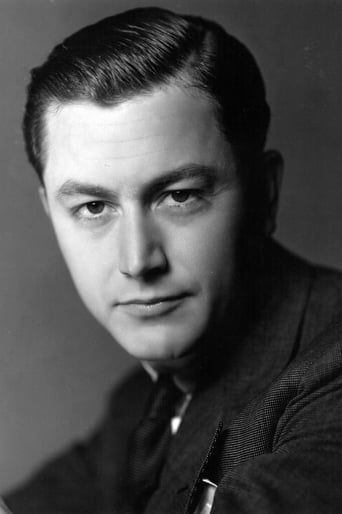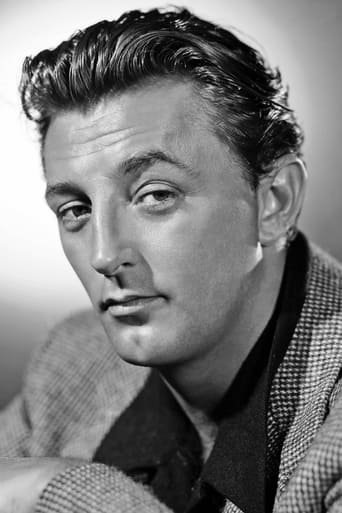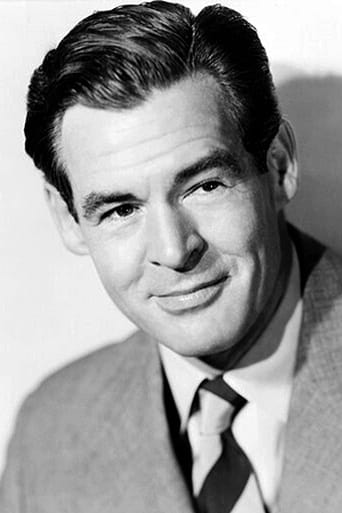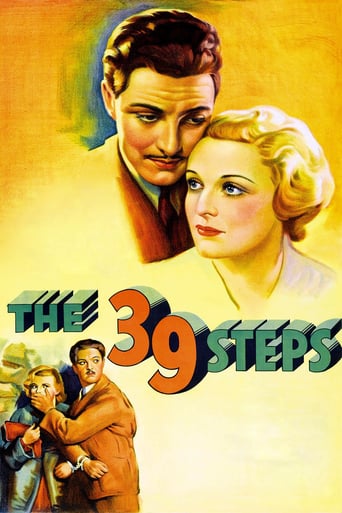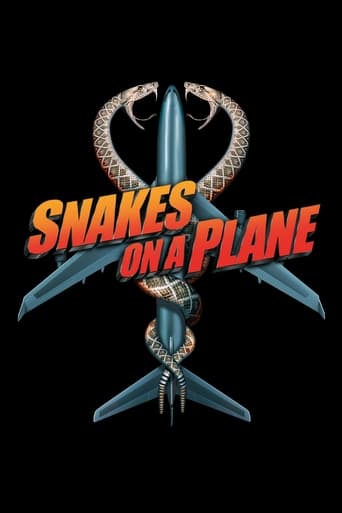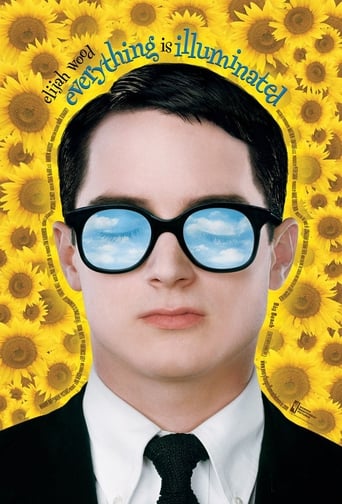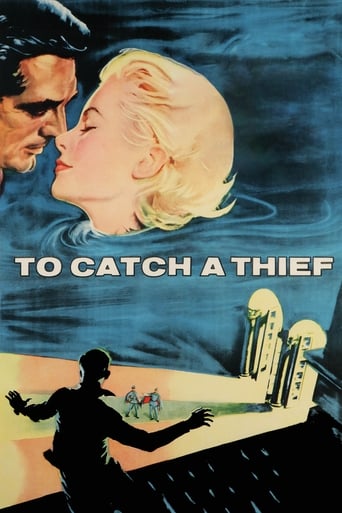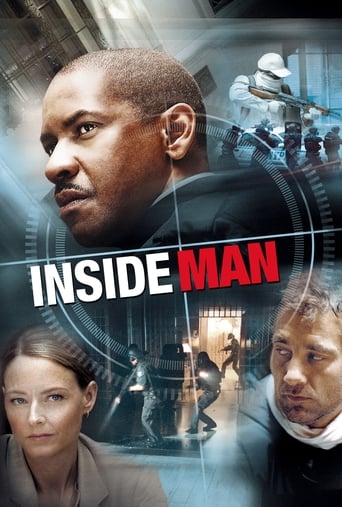Crossfire (1947)
A man is murdered, apparently by one of a group of soldiers just out of the army. But which one? And why?
Watch Trailer
Free Trial Channels
Cast


Similar titles
Reviews
This Movie Can Only Be Described With One Word.
Please don't spend money on this.
The movie is wonderful and true, an act of love in all its contradictions and complexity
This is a dark and sometimes deeply uncomfortable drama
Some great actors, Robert Mitchum, Robert Young & Robert Ryan. They all do a good job with a good & different story. Not a typical "Who Dunit " Early in the movie when Mitchum is interviewed by Young in the Police Staion, FDR's picture is in the wall. The movie takes place right after WWII, when FDR had died and Truman was president.
This fine film noir added social conscience to the usual panoply of a whodunit murder, flashbacks and atmospheric direction, to become one of the first, if not the first mainstream Hollywood movie to call out against anti-semitism in society, although I was interested to learn that in the source-novel, the "motivation" for the murder was actually homophobia.When it stays on-stereo, the film is great. Robert Ryan, a noted liberal in Hollywood, unflinchingly plays the part of the bullying ex-army commander Montgomery who in a cowardly act cold-bloodedly beats to death a Jewish man he and his small coterie of demobbed soldiers meet in a bar. He unsurprisingly then tries to cover up his vile deed by intimidating his companions as well as trying to mislead the local detective, the pipe- smoking Robert Young. Thankfully evil doesn't prosper in the end. but not before Ryan electrifies the screen with a display of boorish malevolence only accentuated by his formidable presence. I found the back-up story of the sensitive young soldier's disappearance and later hook-up with Gloria Grahame, in a memorable cameo as a dime-a-dance waitress in a local dive, to be unnecessary padding. Neither was I taken with slow-walking, slow-talking Young as the law's man-hunter and it's ridiculous to waste a star of the magnitude of Robert Mitchum in a relatively anonymous supporting role as another soldier. I was left wondering how well Mitchum might have played Ryan's part, certainly this film ain't big enough for the both of them.The film is brave enough to allow the word Jew to be used to avoid all doubt and also to show the villain of the piece as a returning army officer with director Tiomkin crafts many an effective scene, the best perhaps being when he puts the camera below Ryan's grim face as he towers over the young acolyte he's coercing into backing his story.For all its minor faults, this film gets it right on the big issue at stake here and deserved all the kudos it got at the time as ground-breaking film, although ironically its director and screenwriter themselves were subject to discrimination in the notorious anti-Communist Hollywood witch-hunt which followed soon after this particular film's release.
I preferred this to Gentlemen's Agreement, if we must limit the comparison to similarly-themed films. I have read too much about what this film could have been, should have been, would have been, but for . . .Criticizing a film because it was not the film you would have made is beside the point. Please go and make your own film. For example, I've seen complaints that the film was an insufficient exploration of anti-Semitism. If the film were made last year, I'd probably agree. But consider the time-frame. 1947. The theme of the source material featured gay-bashing rather than anti-Semitism. That theme would certainly have been interesting, addressed in a film from that year.But woulda coulda shoulda . . . That's not a valid criticism for a film made under the constraints that existed then. Making a 1947 film which "sympathized" with Jews just further cleared the way for the director's place on the blacklist.Let me offer only a simple example of the artistry in this film, which transcends any kind of "message": there is a scene near the end, when soldiers are shaving in a group washroom. The composition of that scene (involving mirrors) and the shots in it--simply breathtaking. I don't know if that scene was the product of the director or the cinematographer, or both. But OMG, what a wonder this is!
This starts like it always happens, bunch of people in a bar. There is a woman involved. Later in the apartment, the husband turns up dead and the suspect is one of a group of soldiers.I will recommend this to you as an unfairly neglected gem, especially to seasoned noir fans who appreciate how film noir is all about a narrator succumbing to hallucination. Its reputation - tense but obvious - is a little tarnished because the main thrust against racial prejudice is overstated, so it's easy to contend yourself that you know so have the upper hand and nothing beyond the hardboiled mystery is worth paying serious attention to. Not so, not so by a mile my friends.The Jewish angle was introduced to make this pose as a serious postwar lesson, you will know it is plain tacky from how quickly the police captain can suss it out as the root of evil. And nothing more patronizing than the captain lecturing about it a young hick from Tennessee, playing up the same stereotype it warns against. You may appreciate this a little more, anyway, when you learn that it was changed from homosexuality in the originating text. Traces are cleverly preserved in the film so be on the lookout.So the bulk of the film is male hierarchy between soldiers, so people in transit, inbetween lives, inbetween shifting of identities. One of them used to be a cop in that other life, another an artist so a sensitive man. Now they're all in the same uniform stationed in the same limbo and all sorts of wounds from the war have not healed.So here's a film that, already by '47, can elucidate what noir is all about and why it feels the way it does; it's about men returned from the certainty of killing, chaos that was nevertheless safety because ordered from above, to open life where you, it had to be you now, had to be someone again and responsible for your own story. So it was a stressful thing, because it could turn out that you are no one at all and have no story, hence the dissolution of self so common in noir, hence the hallucinations, the world conspiring against you, the feeling of dazed powerlessness disguised as fate from above. One option you have is to read everything with repressed male sexuality in mind, that is fine, Beau Travail. But let me point you at something else, what I call layered dreaming. Our artist was out at night dreaming but has no recollection what about, except it started with stress and thinking about his wife that he misses. Mitchum smoothly talks him into all gradually coming back to him, and sure enough; he was with this other woman, and sure enough a woman that reminds him of his wife, and wants him home to wait for her.But something weird happens there. He has fallen asleep and wakes up to find a second man, a really puzzling figure.This guy is the key to the whole mystery. He holds together several layers, by shifting stories that shift identities that shift the gears of knowing and dreaming what this is all about.He says he's just a man waiting for her. He is the husband back home, to a wife he enlisted and couldn't wait to get back to, but once he did she didn't want him.He's not the husband, and just met her at the same joint. He wants to marry her but she won't have him. That's a lie too.If you have no imagination, and why would you dream about him if you don't, he's just the pimp a little wobbly from the war himself. Boring. You will know him as our guy, remember he is telling the story and the story is about waking up, so our guy hallucinating different selves and each self has a life out there and comes back home, maybe an empty home, maybe waiting for a woman who is not there, maybe she could be the wife, maybe it isn't even a home, at any rate it is him in that place he comes back to at nights and mutters to himself echoes from that maybe-life out there.If I had to pick a single favorite moment in film noir, this would be it. Not even Welles touches it. As a metaphor about the mind, it's worthy of being in Blowup.

